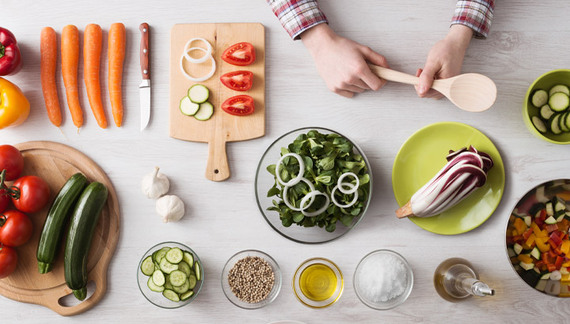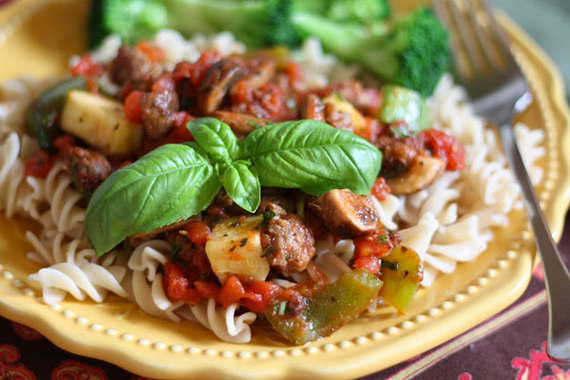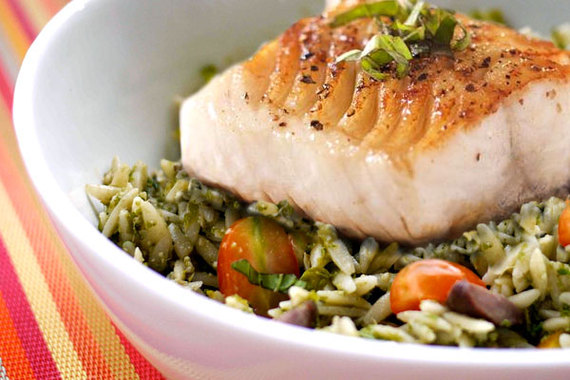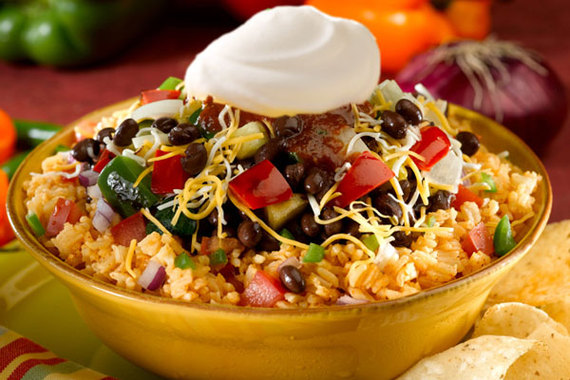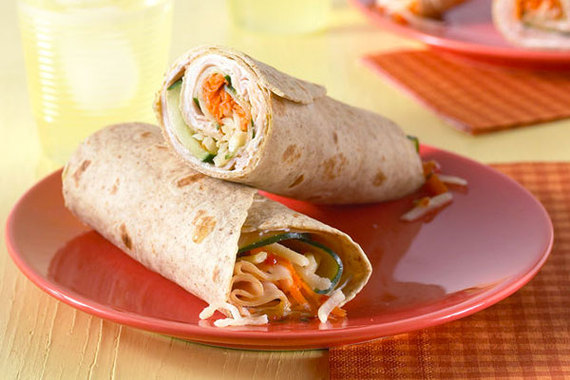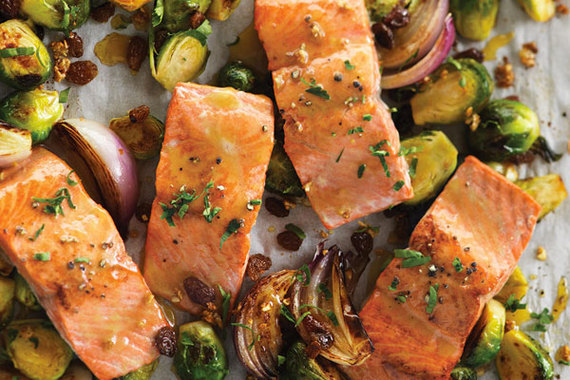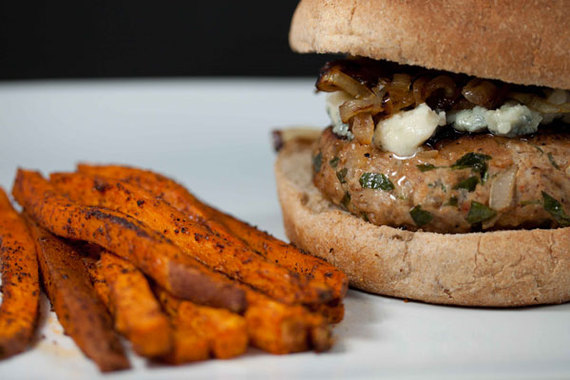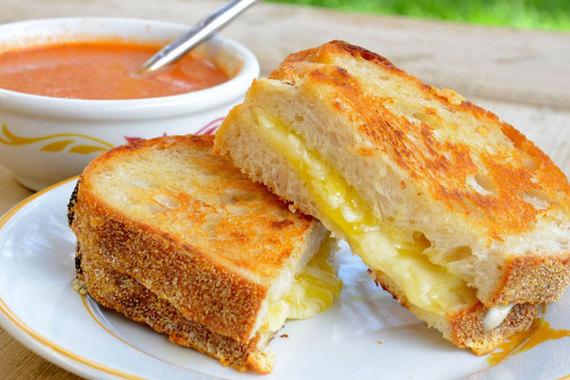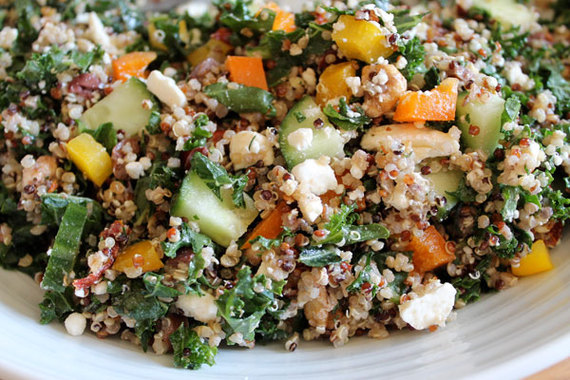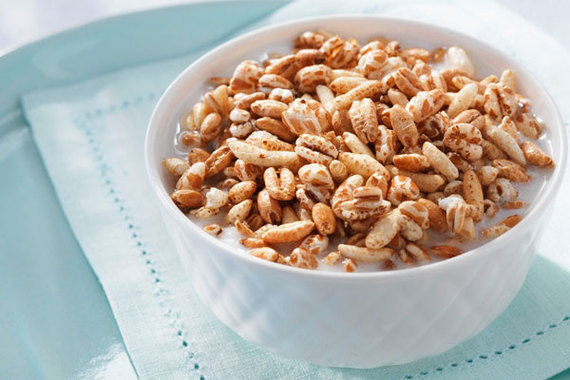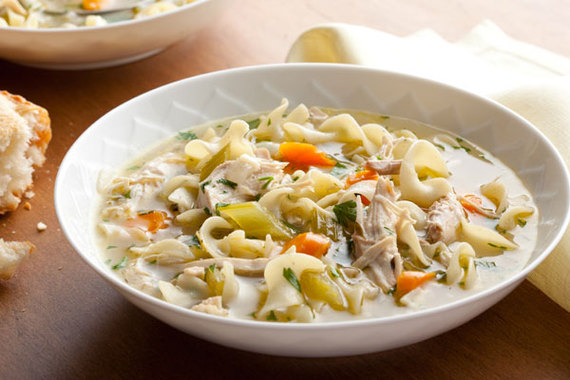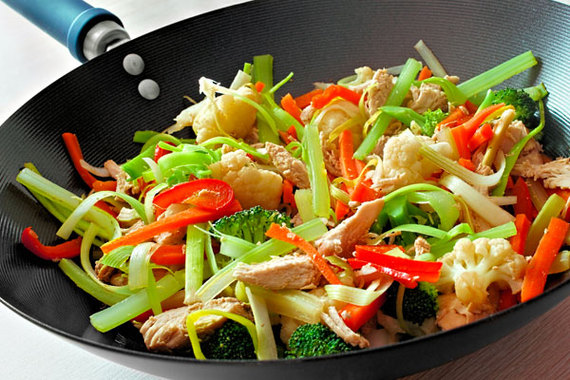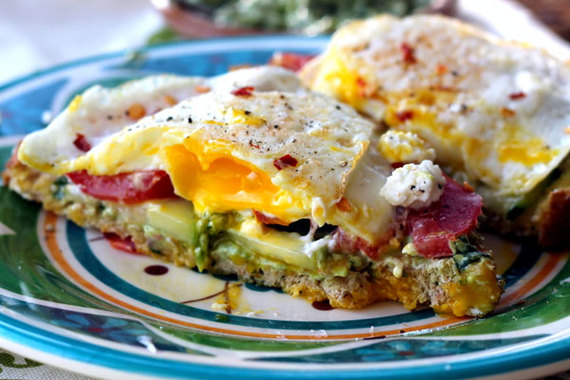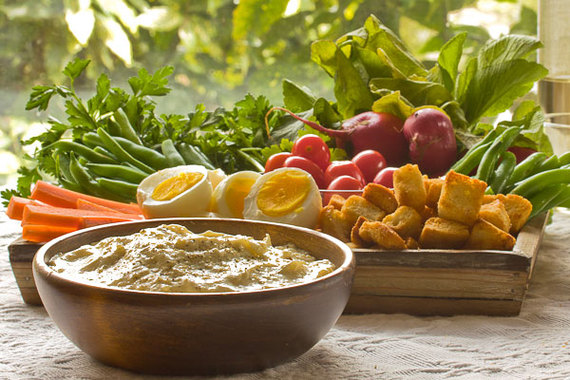Advice for better sleep typically focuses on evening habits like limiting electronics and keeping bedrooms comfortable, but there's one important aspect you might be overlooking.
Dinner. You've heard that you are what you eat, but what you eat may also affect how you sleep.
Certain nutrients are required by the body to carry out daily functions, including making hormones and neurotransmitters related to rest. Other foods can impact physical comfort, affecting slumber by boosting your heart rate or causing indigestion.
The more we learn, the more significant nutrition's role in sleep appears to be. Read on to see how diet and rest connect and what to eat at night to nourish your body for more efficient sleep.
What Makes a Meal Good for Sleep?
While the relationships between sleep and nutrition are still being explored, there have been quite a few studies showing some interesting information worth considering. According to current research on diet and sleep, here's what makes a snooze worthy dinner:
- It's nutrient rich. A large study of data on people's diet and behaviors found several nutrients associated with better sleeping habits. People who slept too little or too much were more likely to be deficient in things like alpha carotene, lycopene, folate, thiamin, phosphorus, vitamins C and D, selenium, iron, zinc, dodecanoic (lauric) acid, theobromine, magnesium, choline, and potassium.
- It includes variety. In the above study, normal, healthy sleepers ate the widest variety of foods. And, it makes sense as the more fruits, veggies, grains and proteins you eat, the larger scope of nutrients your body has access to.
- It's lean. Too much fat is associated with sleeping less. Fried foods and other high-fat meals may contribute to indigestion, and they're also linked with other conditions like high blood pressure which can further impact rest. Choose lean proteins at dinner, skip fried foods, keep oils minimal, and opt for coconut or red palm oils when possible.
- It's balanced. Research shows that people on special diets (like low-carb, low-protein, low-calorie or high salt) are more likely to have sleep problems or abnormal sleep durations. For example, one study found that eating jasmine rice four hours before bed had a positive effect on sleep, so cutting carbs completely at dinner may not be the best move if you have trouble sleeping.
- It's easy to digest. Foods like peppers, heavy meats, fibrous beans and for some people, dairy and cruciferous veggies, can all cause bloating and indigestion that makes settling into bed uncomfortable.
- It's not stimulating. Dinners should not include a lot of sugar or any caffeine sources, since both can leave you buzzed. One study also says spicy food is a bad move, as it may raise body temperature and keep you from getting drowsy (body temperatures generally drop early in the sleep cycle).
- It's not too small or too big. Skimping on calories is linked with more sleep problems, and going to bed hungry isn't a comforting feeling. On the other hand, stuffing yourself too close to bed is also unwise as your body may not be ready to wind down come bedtime. Keep portions moderate and listen to your body.
13 Simple Dinners to Cook Up Better Sleep
Based on the nutrition principles associated with healthier sleep, evening meals should include a variety of produce, as well as lean protein and healthy carbohydrates. Going too light or too rich during nighttime meals could both keep you up at night, so balance is key.
Here are 13 simple meal ideas that incorporate whole foods rich in sleep-supporting nutrients. Most of these ideas can be made in 30 minutes or less, and utilize easy-to-find ingredients.
Veggie Marinara + Pasta
Marinara sauces are simple to make from scratch, and the cooked tomato base packs a ton of lycopene. Saute onion and garlic and give it a boost with minced carrots for alpha carotene and portobello mushrooms for vitamin D and calcium. Add a large jar of tomato passata or crushed tomatoes, and season with a splash of balsamic vinegar and basil. Partner with whole grain pasta and add ground turkey or chicken sausage for a protein boost.
Seared Cod + Kale Orzo
Pacific cod is rich in B vitamins and several minerals like selenium and choline, and is popular for being a milder fish. Pan sear or broil it (instead of breading and frying) to keep dinner light. Sauteed shredded kale with garlic, whole wheat orzo and a squeeze of fresh lemon makes a filling side that packs even more nutrition plus satisfying carbohydrates.
Taco Rice Bowls
Choose a lean, mineral rich protein like chicken, ground turkey or black beans and season it with a low-sodium option like southwest Mrs. Dash-type blends. While the meat cooks, make some jasmine rice, and toss it with a little lime and cilantro once done. Serve with a simple pico de gallo salsa, sliced avocado, and shredded red cabbage for a full spectrum of sleep-healthy, delicious nutrients.
Deli Turkey Wrap
When time is of the essence, wraps and sandwiches are always a handy option. Use a low-sodium turkey deli meat or slice up a rotisserie breast. Turkey packs tons of minerals and vitamins, and is one of the top proteins for sleep. Wrap it up in a whole-grain tortilla or lavash bread, and pack it with baby greens, tomatoes, and other veggies you like. If you're prone to indigestion, skip the hot peppers or spicy condiments though. Pair with a side salad or baked chips.
Roasted Salmon + Veggies
Wild salmon is well-known as a superfood, and it's also good for sleep with loads of vitamin D and selenium. Cook it in lauric acid-rich coconut oil to maximize the sleep boost. Roast carrots, cauliflower and brussel sprouts alongside to amp up the mineral and vitamin content, and serve with brown rice (frozen is great and quick) for a healthy carbohydrate.
Turkey Burgers + Sweet Potatoes
Lean ground turkey brings a bevy of good-night minerals, and it's also pretty affordable. Make simple patties with a little minced onion and herbs, and cook in a pan or on the grill. Dress with dark leafy greens and tomato. Roast chopped sweet potatoes in a little coconut oil and smoked paprika for about 30 minutes for an added boost of alpha carotene, potassium and healthy carbs.
Grilled Cheese + Tomato Soup
A 2005 study from the British Cheese Council suggests Red Leicester, Brie and Cheddar could contribute to positive dreams. Amongst the 200 participants, no one reported nightmares following cheese consumption, possibly debunking the old wives' tale. Pair brie with basil and tomato, cheddar with apple or mushrooms, or leicester with a tangy chutney. Go easy on the butter (or swap it for coconut oil), and partner with a light, low-sodium tomato soup.
Quinoa Salad + Walnuts
Quinoa brings phosphorus, potassium, lutein + zeaxanthin and other minerals, as well as healthy carbs and protein. Cook some up and toss the cooled quinoa with chopped tomatoes, baby greens, olives, currants, corn, scallions and walnuts. Complete the meal with a drizzle of citrus or berry vinaigrette. Boiled egg, grilled chicken or salmon also make great partners here.
Whole-Grain Cereal + Milk
Embrace your inner eight-year old and pour yourself a bowl of cereal. The carbs in cereal help keep you sated at night and milk provides a few vitamins, but compromise with your inner adult by choosing a lower-sugar whole grain variety, and maybe munch on a few carrot sticks and brazil nuts, too. Opt for almond or coconut milk if dairy gives you stomach troubles.
Savory Chicken Soup
Soups are always comforting, and they can also be simple ways to get in healthy veggies. Start by sauteeing garlic, onions and carrots, then toss in chopped mushrooms. Add in a low-sodium broth, chopped fresh tomatoes, and any other veggies you fancy. Towards the end, toss in chopped cooked chicken (leftover baked chicken or rotisseries work great) and a couple handfuls of shredded kale or spinach. Serve with crusty bread or over whole grain pasta.
Veggie Stir Fry
Veggies bring a wide spectrum of sleep-supporting vitamins and minerals. Grab a pre-cut mixed bag of veggies like peas, broccoli, carrots and baby corn from the produce or freezer aisle. Start by sauteeing a little garlic and ginger in safflower or sesame oil. Brown some cashew nuts or minced chicken if you'd like, then flash saute until your veggies are al dente. Dress with a little soy sauce or teriyaki and serve with jasmine rice or linguine.
Have Brinner
Who wants to wait until the weekend for tasty breakfast foods? Besides, eggs and whole grains can both be great for evening meals, too. Just opt for lighter selections like scrambled or poached eggs, oven-roasted potatoes, and fresh turkey sausage. Balance it out with some sauteed spinach, tomato or avocado. Waffles or pancakes could also work, but partner them with almond or peanut butter rather than sugary syrup.
Crudite Platter
Too hot to cook? Make a rainbow-worthy veggie platter or assemble one from your grocery's salad bar for a quick and satisfying dinner. Carrots, celery, grape tomatoes, blanched broccoli, snap peas, jicama, and cucumbers are all refreshing go-tos. Add in some hummus and pita wedges to fill you up, and some boiled eggs or a handful of nuts for a protein boost.
Find yourself with a sweet tooth late at night? Fret not -- there's also sleep-friendly dessert options. Trail mix with dark chocolate, a banana, kiwi fruit, crackers and peanut butter, or even a low-sugar yogurt with nuts and seeds also provide dreamy ways to indulge without the empty sugar rush.
What meals or foods do you find help you snooze best at night? Have any other tasty dinner ideas using sleep-friendly fare?
This article originally appeared on the Amerisleep blog.
Rosie Osmun is the Creative Content Manager at Amerisleep, a progressive memory foam mattress brand focused on eco-friendly sleep solutions. Rosie writes more posts on the Amerisleep blog about the science of sleep, eco-friendly living, leading a healthy lifestyle and more.
